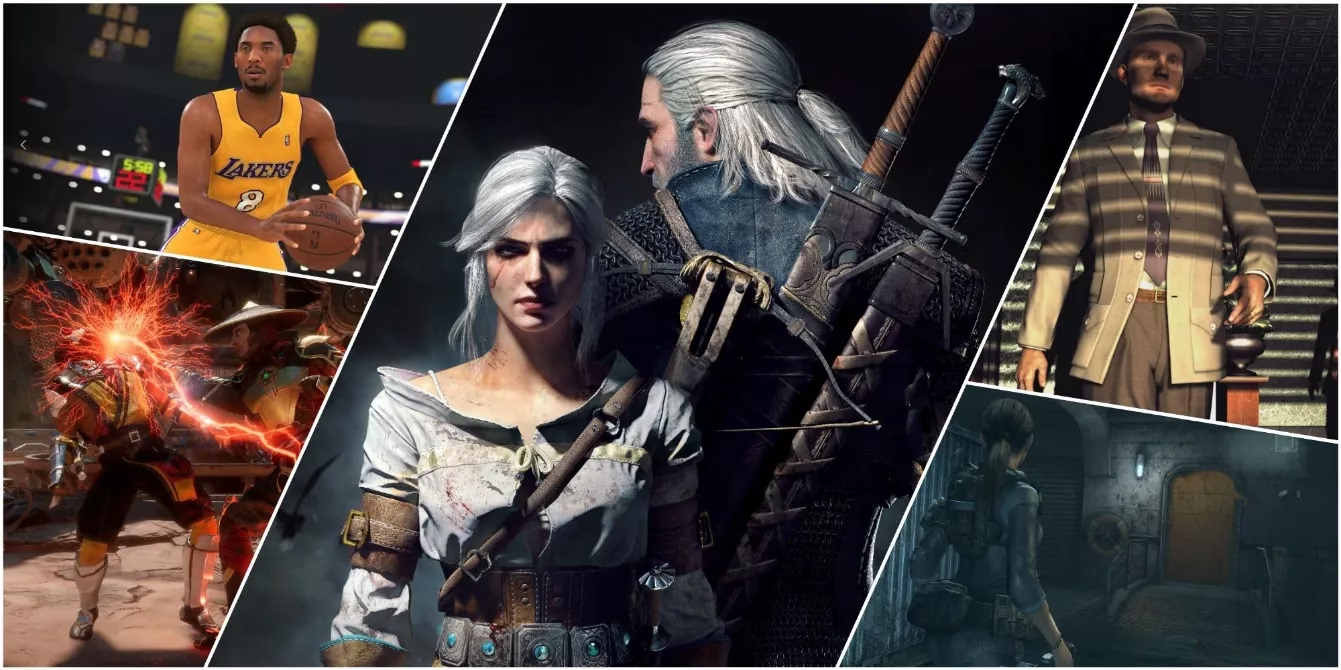The Nintendo Switch continues to defy expectations with its library of visually rich titles, yet this achievement comes at a cost—storage space. As developers push the hybrid console's limits with ambitious ports and remasters, players increasingly find themselves grappling with digital behemoths that devour precious gigabytes. These games, ranging from narrative-driven visual novels to sprawling open-world adventures, demand more than the Switch's internal memory can offer, turning storage management into a high-stakes game of its own. The trend reflects a paradox: a portable marvel straining under the weight of its own ambitions, like a backpacker attempting to carry a grand piano through a mountain pass. 🎒🎹

Tsukihime: A Piece of Blue Glass Moon
Despite being a visual novel—a genre typically lean on storage—Type-Moon's 2024 remake consumes a surprising 23 GB. This gore-infused high-school narrative, originally released in 2000, now boasts modernized 2D art and music, yet its size eclipses most peers. For context, similar visual novels often fit comfortably in single-digit gigabyte territory. The remake covers only half the original's routes ('Near Side of the Moon'), making its footprint even more baffling. Players might feel like they've downloaded an entire encyclopedia when expecting a pamphlet.
Resident Evil Revelations 2
At 24.22 GB, this 2017 Switch port dwarfs its predecessor's 12 GB footprint. It continues the series' episodic horror format with enhanced mechanics like moving-while-shooting, but the ballooned scope feels disproportionate. Originally skipping Nintendo’s eighth-gen hardware, its arrival on Switch was celebrated—yet the install size now mirrors a bulky piece of furniture in a tiny apartment. 🛋️
L.A. Noire
Rockstar’s 2017 re-release demands 28.14 GB, outpacing even the 25 GB collective size of 2021’s Grand Theft Auto: The Trilogy. With upgraded HD textures and lighting, this crime-solving adventure leverages motion-capture interrogations that feel both immersive and storage-intensive. It’s a digital detective’s case file swollen to bursting—every clue and corner of 1940s Los Angeles exacts a cost.
Apex Legends
Respawn’s free-to-play shooter requires 30 GB, a reasonable ask given its six-year evolution and live-service model. Featuring 25 Legends and blending Titanfall’s mechanics with battle royale thrills, it runs smoothly on everything from high-end PCs to the Switch Lite. The size reflects constant updates, yet players might grumble about a game that expands like unchecked urban sprawl. 🏙️
EA Sports FC Series
| Game Title | Storage Requirement |
|---|---|
| FC 24 | 31.83 GB |
| FC 25 | 32.41 GB |
Electronic Arts' soccer juggernauts keep growing, with FC 25’s 32.41 GB edging past its predecessor. Housing over 17,000 players and annual updates, the series faces criticism for iterative changes—but its bloated size is the real foul. For fans, it’s like stuffing a stadium into a carry-on suitcase.
The Witcher 3: Wild Hunt
CD Projekt Red’s 2019 port remains a technical marvel but demands over 40 GB for its Complete Edition. The 100-hour open-world epic, with all DLC included, justifies its heft through sheer content density. Playing it on Switch is akin to unfolding a cathedral inside a camper van—a breathtaking yet cramped experience. ⛪🚐
Mortal Kombat 1
NetherRealm’s 2024 fighter soars to 47.52 GB despite the Switch’s technical struggles, nearly doubling Mortal Kombat 11’s 33.27 GB. While it delivers all content, performance issues make the file size feel like an overpacked parachute—bulky but unreliable.
NBA 2K24
Topping the list at 60.57 GB, this basketball titan exemplifies storage excess. The Kobe Bryant Edition out-sizes even FC 25 and feels like fitting an entire NBA arena into a smartphone. With annual installments hovering near 60 GB, 2K Sports’ series has become the Switch’s most demanding tenant. 🏀💾
In 2025, these storage-heavy giants highlight a growing tension: the Switch’s hybrid brilliance versus its physical constraints. Players navigate this landscape with external cards, but the trend shows no sign of shrinking. Like libraries requiring their own zip codes, these games transform digital shelves into crowded real estate—a testament to ambition outpacing practicality.
